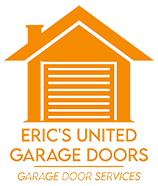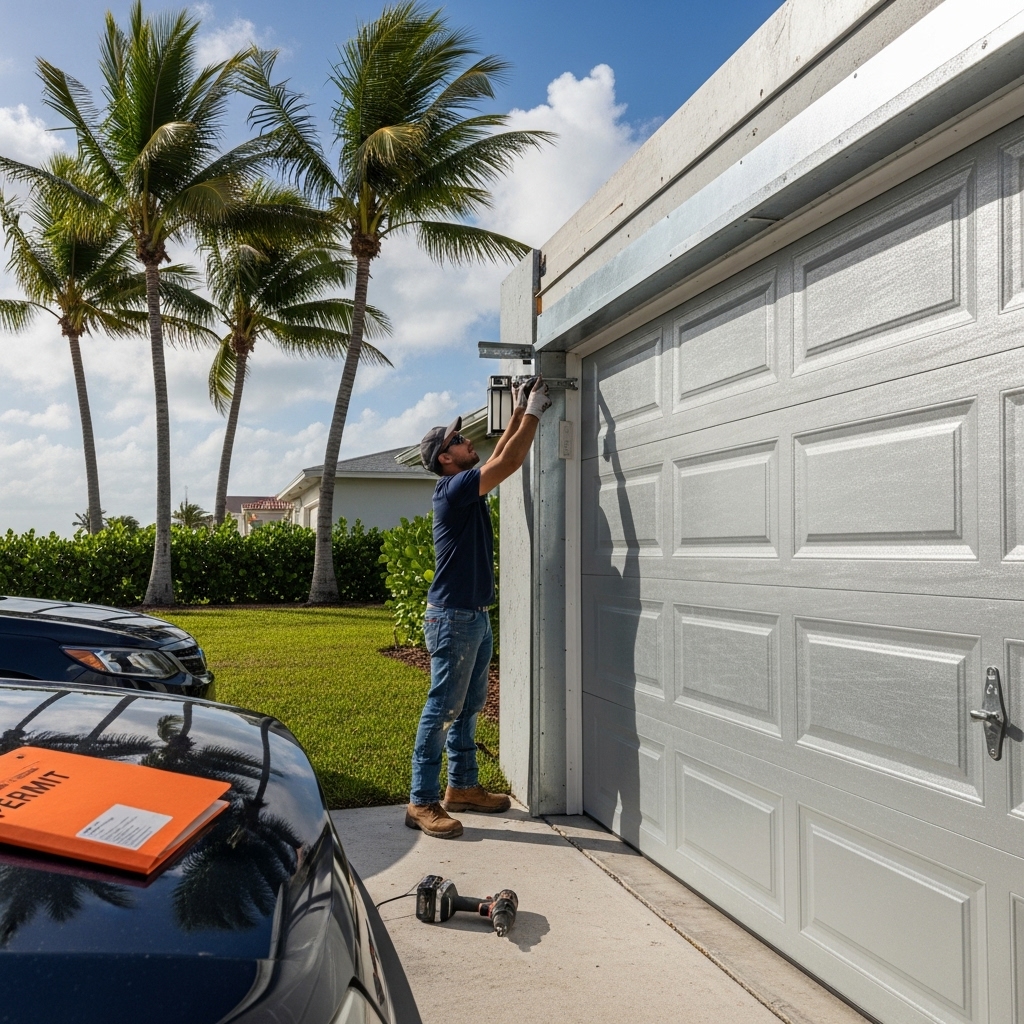Searching for affordable, reliable, and code-compliant solutions for a new garage door in Fort Lauderdale can feel overwhelming. You want something that looks great, stands up to salt air and storms, and fits your budget—without compromising safety. If you are comparing options near you, it helps to understand local building requirements, materials, and the installation process so you can make confident decisions. Right from the start, one smart move is to work with a local professional who understands Broward County inspections and Florida Building Code. An experienced team can streamline permits, scheduling, and quality control for your garage door installation, helping you avoid costly do-overs or delays.
Affordability is not only about the sticker price of a door. In a coastal city like Fort Lauderdale, the true value of a garage door includes its durability in humidity, resistance to corrosion, hurricane performance, and long-term maintenance profile. A door that holds up well in this climate can save on headaches and repairs for years.
Understanding Fort Lauderdale’s Local Conditions
Fort Lauderdale’s environment is uniquely beautiful and uniquely demanding. The mix of coastal breeze, UV exposure, and seasonal storms can accelerate wear on metals, finishes, and moving parts. Knowing this, prioritize materials and finishes that resist corrosion, as well as hardware designed for high-wind regions. Selecting the right configuration early—wind load, reinforcement, and track anchoring—prevents expensive upgrades later and helps your door pass inspection the first time.
Additionally, neighborhoods with homeowners’ associations may have architectural guidelines for colors, window lites, or panel styles. Aligning your choices with those rules up front streamlines approvals and avoids re-selections that waste both time and money.
How to Approach “Affordable” Without Sacrificing Quality
Affordability is a combination of smart selection, realistic expectations, and careful installation. Rather than chasing the lowest possible price, focus on the best value for your needs. The door you choose should be properly rated for high-velocity hurricane zones if required, built with rust-resistant hardware, and backed by a reputable installer who stands behind their work.
- Choose standard sizes when possible. Custom widths or heights add complexity, which can add to project time and material needs.
- Consider steel with a durable finish. Quality galvanized or aluminum-zinc coated steel offers resilience without the upkeep of some specialty materials.
- Pick a simple, timeless panel design. Ornate, uncommon patterns may require special orders. Classic raised or contemporary flush panels are often more readily available.
- Evaluate insulation based on use. If your garage is conditioned space or connected to living areas, insulated doors can stabilize temperatures and reduce noise. If the garage is detached and unconditioned, a non-insulated or lightly insulated door could be a sensible choice.
- Coordinate opener compatibility. A correctly matched opener with appropriate lifting power and safety features protects your investment and can reduce future service calls.
Wind Load and Hurricane Considerations
Fort Lauderdale projects often fall within high-velocity hurricane zones or areas with stringent wind-load requirements. A door designed for these conditions will include reinforced struts, upgraded track and bracketry, and more robust fastening to the structure. Not only does this protect your home during a storm, it also helps avoid last-minute changes if an inspector requests a different configuration. Properly specifying these details at the start is the most affordable approach, because it prevents rework and expedited shipping of extra parts.
Look for documentation from the manufacturer demonstrating code compliance for your area. Be ready to provide drawings and product approvals to the installer and the inspector. Keeping all paperwork organized supports a smooth permit and inspection process.
Installation Steps That Influence Value
A clean, careful, and safe installation protects both your property and your door. While every project is unique, the overall process tends to follow a predictable flow:
- Site assessment and measurements to confirm rough opening, headroom, and backroom.
- Selection of door, hardware, wind load package, and opener compatibility.
- Permitting and scheduling with consideration for HOA approvals if applicable.
- Removal and responsible disposal of the existing door and hardware.
- Installation of tracks, reinforcing, torsion or extension springs, and safety components.
- Panel stacking, alignment, weatherstripping, and seal checks.
- Opener installation or reattachment, photo-eye alignment, and safety reversal testing.
- Final inspection, adjustments, lubrication, and homeowner orientation.
Attention to each of these steps prevents common problems, from noisy operation to binding or premature wear. A proper setup also reduces call-backs and keeps your out-of-pocket maintenance down over time.
Design Choices That Look Good and Keep Spending Sensible
Garage doors significantly influence curb appeal. In Fort Lauderdale’s neighborhoods—ranging from coastal contemporary to classic Florida ranch—doors that complement the home’s lines feel intentional and upscale. Luckily, many budget-friendly options look great, including modern flush steel with horizontal grooves, or classic raised panel designs in neutral finishes that resist fading.
- Windows can brighten the garage. Choose impact-rated lites or opt for no glass in hurricane-prone areas to keep designs simple and durable.
- Color matters. Factory-applied finishes tend to last longer than field paint and resist the sun better in coastal climates.
- Hardware accents are optional. Decorative hinges and handles offer a custom look but can be added later if desired.
Smart Ways to Stretch Your Budget
When you’re looking for affordability near you, aim for options that protect the door’s function and durability first. Cosmetic elements can be upgraded later, while foundational features like wind load structure and rust-resistant hardware deliver long-term value.
- Stick with readily available models to avoid extended lead times.
- If your existing opener is compatible and in good condition, consider keeping it. Your installer can verify safety and performance.
- Ask about maintenance best practices to extend the life of springs, rollers, and hinges.
- Plan for annual tune-ups. Small adjustments and lubrication preserve smooth operation and help catch issues early.
Working With a Local Professional
Local expertise matters. Installers who frequently work in Fort Lauderdale understand coastal considerations, the permitting office, and HOA expectations. They know which products are holding up well in the area and how to set realistic timelines around weather. This knowledge helps you avoid hidden pitfalls and makes the process easier from the first call through final inspection. In the middle of your research, it is worth exploring professional options for garage door installation so you can compare features, materials, and timeline expectations with a team that regularly serves your neighborhood.
Maintenance Habits That Save Money Over Time
Simple habits extend the life of your door. A quiet, balanced door with aligned safety sensors is less likely to cause setbacks. Homeowners can do a visual inspection monthly—looking for frayed cables, rust on hardware, or gaps in weather seals. Keep tracks free of debris and wipe down the bottom seal to remove sand and grit. Schedule professional service if the door becomes noisy, binds, or seems imbalanced.
- Lubricate moving metal parts as recommended.
- Keep the area around photo-eyes clean and aligned.
- Replace weatherstripping when it becomes brittle or cracked.
- Test emergency release and manual operation periodically.
Common Pitfalls to Avoid
Saving money is easier when you sidestep the mistakes that often cause extra trips or rework.
- Overlooking wind load requirements. If a door is not properly rated, it can fail inspection or, worse, underperform in a storm.
- Assuming any opener will fit. Pairing door size and weight with the right opener prevents strain and poor performance.
- Skipping inspections or documentation. Fort Lauderdale has standards for a reason; they protect your home and the community.
- DIY spring work. Torsion springs store serious energy. Trained technicians have the tools and procedures to handle them safely.
FAQ
Q: How do I know if my home needs a wind-rated door?
A: Check your address against local wind maps and ask your installer. Many areas in and around Fort Lauderdale require wind-rated or hurricane-rated assemblies to meet code.
Q: Can I reuse my existing tracks and hardware?
A: Sometimes, but only if they are compatible with the new door and meet the necessary ratings. Your installer can confirm what is safe to reuse.
Q: What panel material resists coastal conditions?
A: Galvanized steel with a quality finish is a common, resilient choice. Aluminum is light and corrosion-resistant, and composites can also perform well.
Q: Do I need insulation in Fort Lauderdale?
A: If your garage is attached or the space is used for hobbies or laundry, insulation can improve comfort and reduce noise. Detached, unconditioned garages may not require it.
Q: How long does installation take?
A: Most single or double doors can be installed in a day once materials and permits are ready, but timing varies with complexity, weather, and inspections.
Q: Will a new door be quieter?
A: Modern rollers, balanced springs, and proper track alignment contribute to smoother, quieter operation compared to aging assemblies.
Q: What ongoing care should I plan for?
A: Light cleaning, periodic lubrication, and a professional tune-up help keep components in top shape, especially in a coastal environment.
Q: Can I add smart features later?
A: Yes. Many openers accept add-on smart modules, and accessories can often be integrated after the door is installed.
Ready to improve your Fort Lauderdale home?
If you are aiming for a door that looks great, operates safely, and stands up to coastal weather—without unnecessary extras—partner with a trusted local team. Ask for wind load guidance, hardware recommendations, and maintenance tips tailored to your neighborhood. When you are ready to move forward, schedule professional garage door installation with a crew that understands Fort Lauderdale’s codes and climate and will guide you from selection through final inspection.

